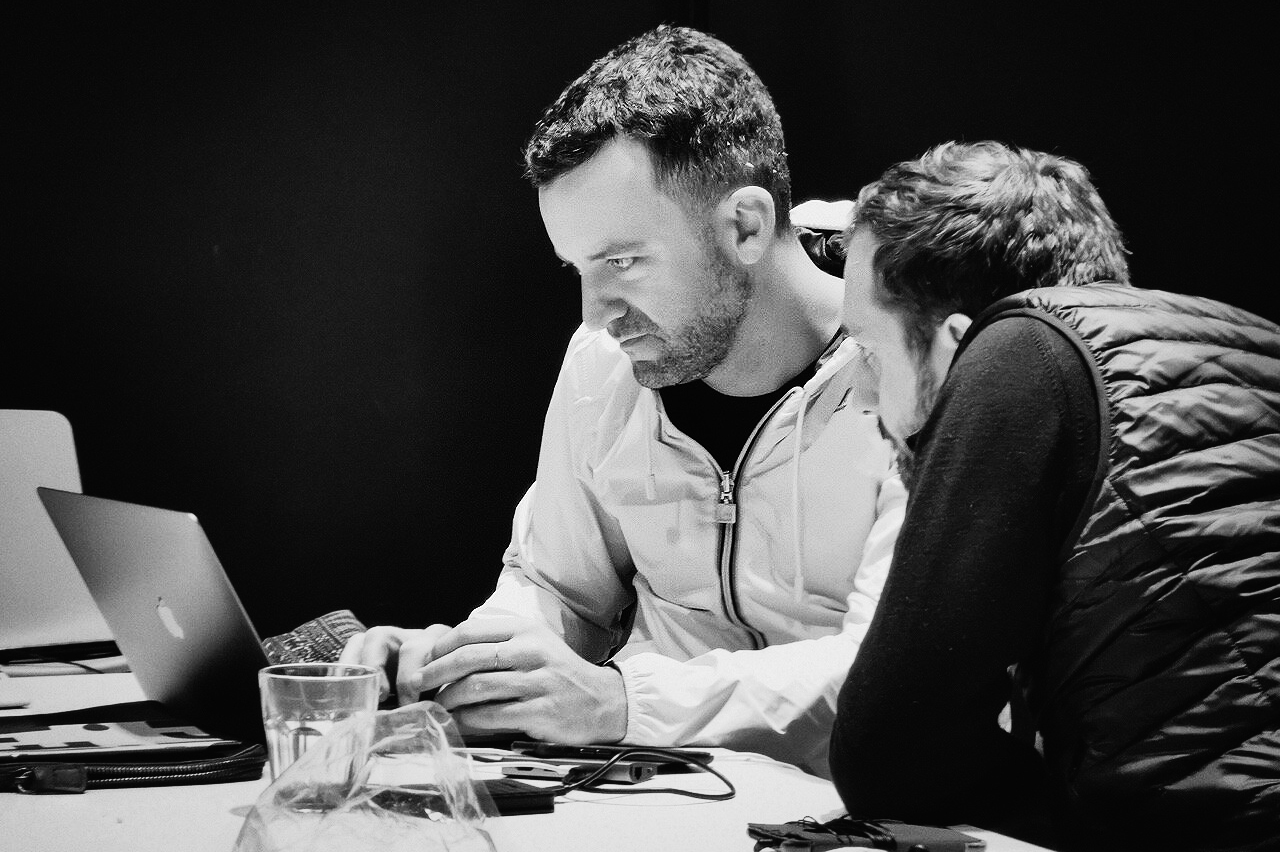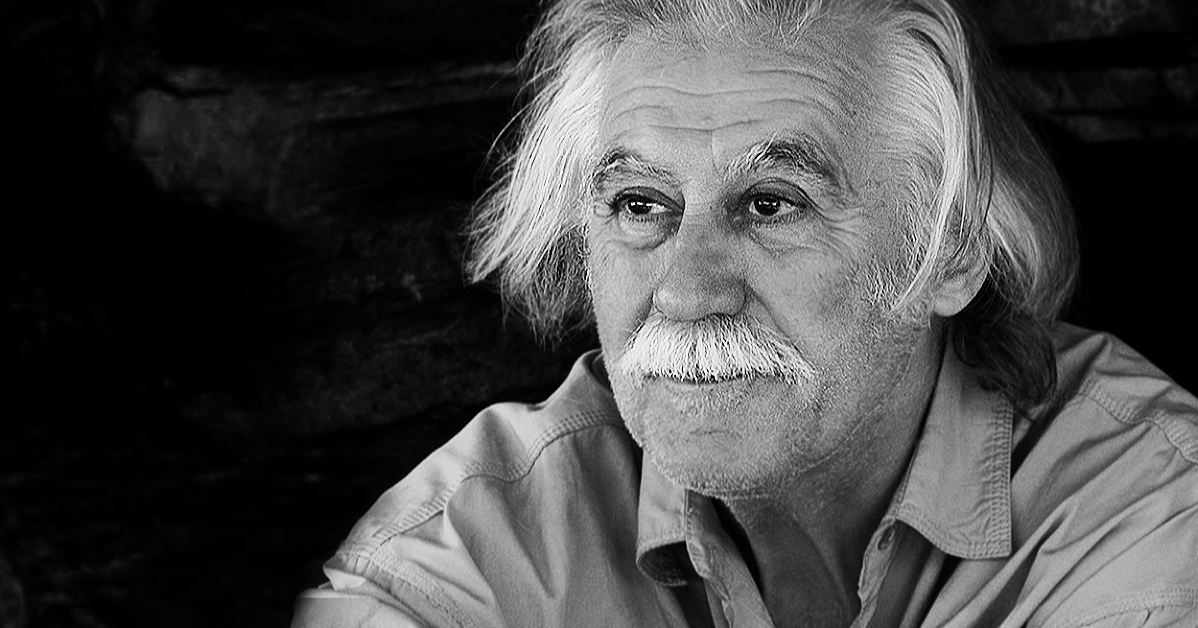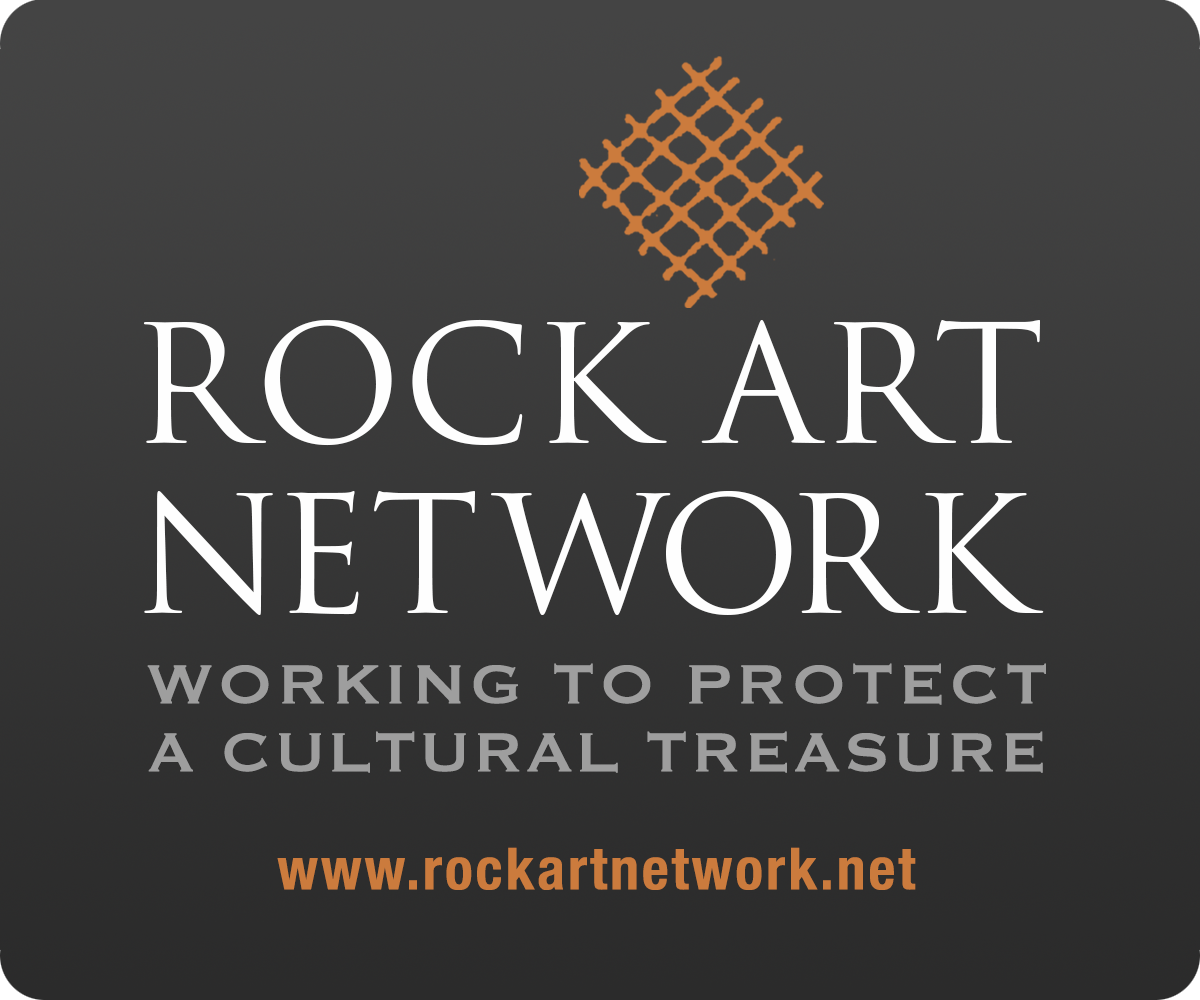
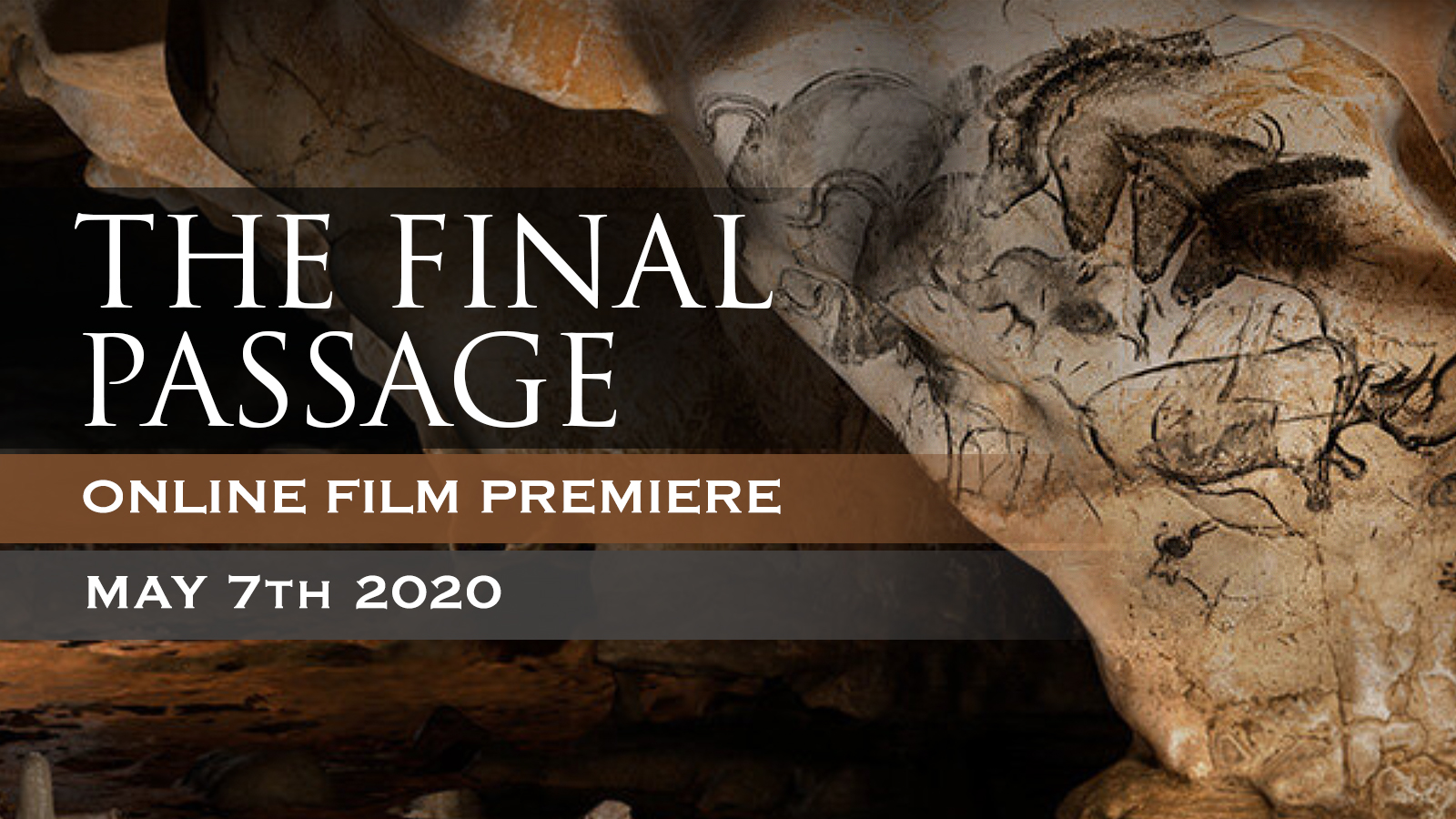
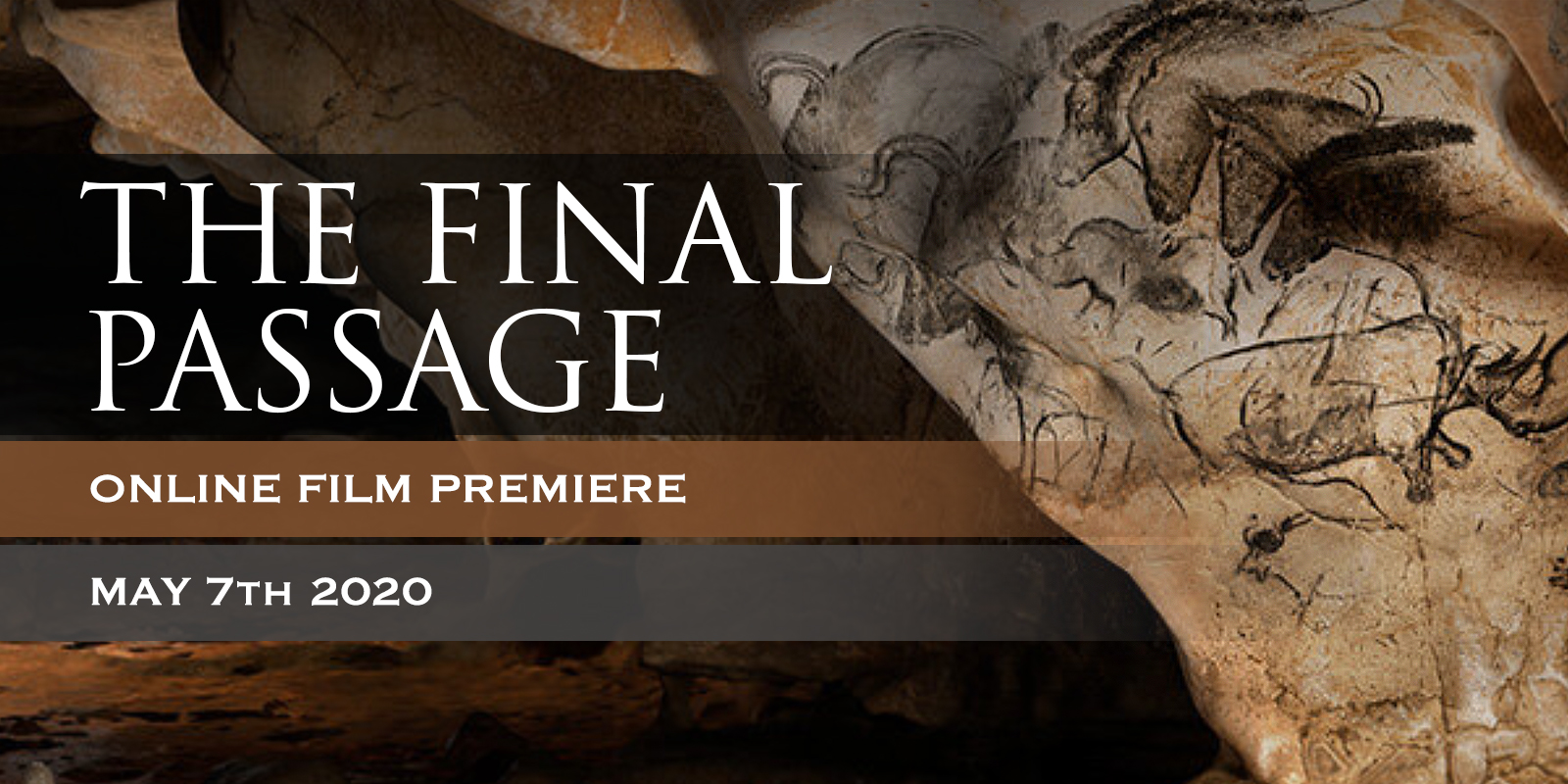
by Martin Marquet
Film Producer, Member of the Rock Art Network
Over 36,000 years ago, humans were sparse and lonely in the world. Their tiny communities were lost in an ocean of animal populations. It was an unimaginable isolation that can compare to what we are experiencing right now, confined as we are in our too-narrow living spaces. Then, from the depths of this solitude, imagining their future, experimenting with color, form and sign, they invented art on the rocky walls of the world. “The Final Passage” is the opportunity of a virtual trip transporting us to that world. May this journey through time and through the origin of art re-enchant a world in danger.
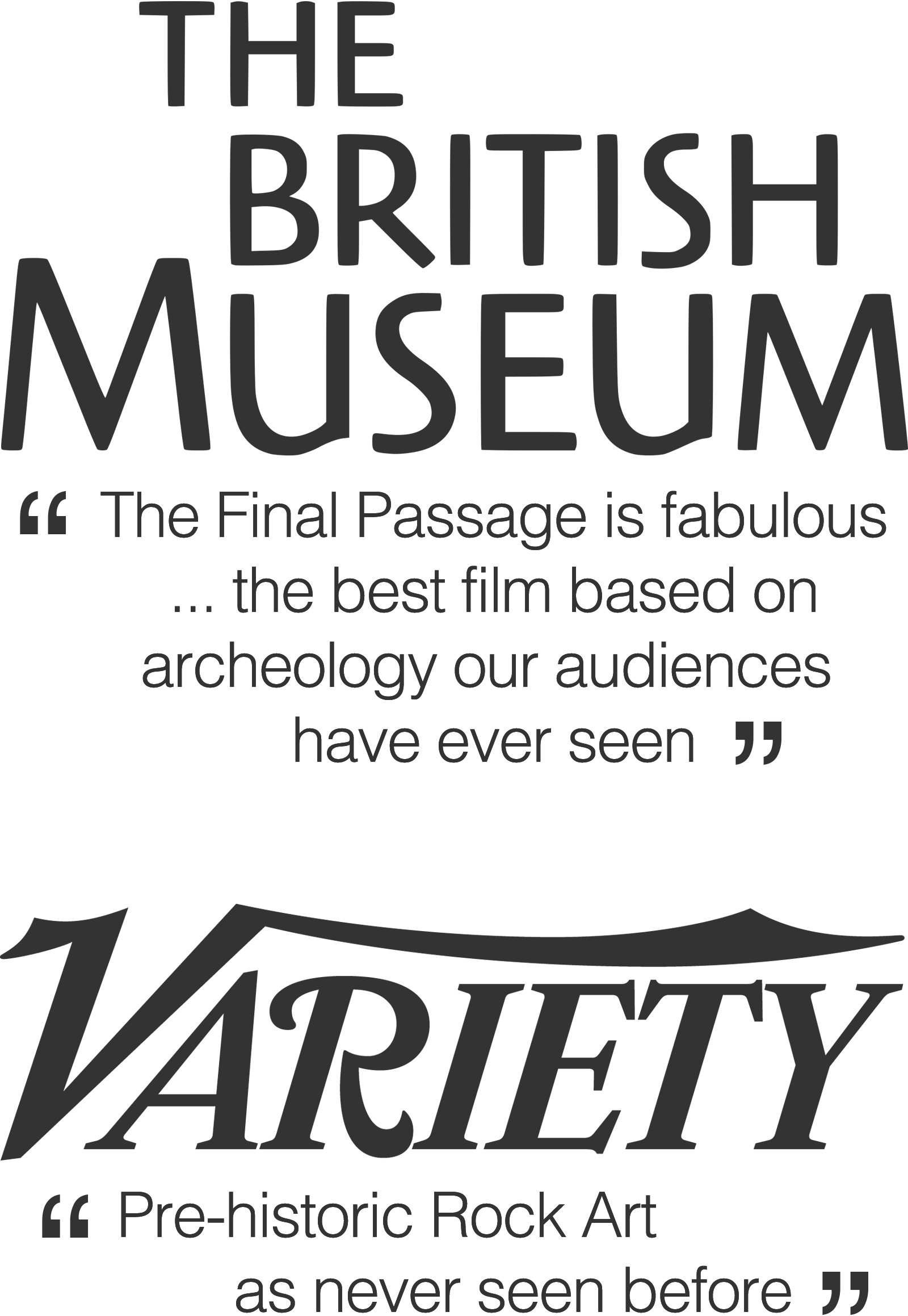
In the context of this pandemic and of national lockdowns, when Rock Art sites and their replicas are closed to the public, film producer Martin Marquet took the initiative to invite film director Pascal Magontier, Jean-Michel Geneste and the Rock Art Network to join him in making “The Final Passage” a gift to the world, with free and unlimited online viewings.
In the form of an introspective journey through the world of Rock Art, in the heart of the first art that ever existed, this exclusive online release of the “The Final Passage” is a timely event, symbolic of the depth of roots common to all humanity, inherited from immemorial time, 36,000 years ago in glacial Europe.
In the surroundings of the Chauvet Cave, humans had to face hardships and survive in a world they could not control, but in which animals were powerful and overabundant, just as the virus is reminding us today.
→ For more information and to watch The Final Passage, please visit: www.taraexpo.com
Humans live on distant horizons, once said a philosopher, observant of the past, on which we learn history, and constantly thrown into the future. Faced today with an unprecedented situation, the archaeologist that I am investigates the past to continue to understand what could consolidate and redirect the future on a better-shared basis.
What just happened to us? A living being on the planet, a new virus, an invisible, microscopic living being, has just reminded us of the fragility of the human species. How can we react to a planetary phenomenon that plunges us into the unknown when we thought we had mastered the world and nature?
© Patricia Marquet Geneste
On the one hand, this health crisis is revealing what was already broken. The resulting pandemic reminds us that "nature" does not think. It is lavish, wild and cruel. It is the humans who think, and it is up to them not to manage nature, but to respect and seek an equilibrium with the myriad of other beings with whom we share existence. Over two months, the corona virus has spread to three billion human beings under the facilitating effects of an exacerbated globalization, the unlimited development of communication and economic routes, the drastic decrease in biodiversity and the misinformation fed to the population.
On the other hand, with distinctive contrast, the crisis reveals a deep desire for solidarity. A lasting epidemic endangering the entire world is a suitable time for reappraisal. After the fear that has fallen upon us there will come a time to question ourselves with the desire for a new world. What will we learn from this world crisis?
We immediately draw new lessons from this. We must relearn that human life is the most precious of our value system. We must learn again that the strength of the mind is the only value that counts in times of crisis of any nature. Let’s be realistic - there will be other crises. They are already looming at our doorstep: climatic and geopolitical crises, and the migration crisis caused by each.
In the wake of the pandemic, taking into account our respective physiological frailties, we are coerced into reconnecting with our most profound human values. Thus, spiritual forces allow us to respond in the decisive hours. Ultimately, an unalterable sense of otherness and support, as well as the ability to assume collective responsibility at different levels between individuals and between nations, is reappearing. A new community is emerging. Universal values are being rediscovered. These values will enable us to fight more effectively against our blindness to a frenzied globalization; among them are the depth of territorial rootedness, cultural diversity and the inter-cultural exchanges that should flow from them all.
We will probably find new values, a new meaning of the world. A positive change in the concept of time and space is taking place right before our eyes. However, the function of time and space is fundamental for the living. Our current state of "real-time" communication on a global scale, a central characteristic of globalization, is now being replaced by a less impersonal time - specific to each of us - reflective of our lives on a more personal, even communal level; we have been blessed with an unexpected gift as a result of our constrained confinement. It is a time for the emergence of a new spiritual quality, which is a more interior time. This inner time, which is specific to our species, invites sharing and otherness among all. Imagination and poetry find their place in the luxury of this "regained time".
"The seat of the soul is where the inner world and the outer world meet," writes Novalis. In this crisis of the outer world questioning so many parameters, including some of the most profound ones affecting our human condition and the awareness we have of ourselves, shall we regain a soul?
Jean-Michel Geneste
March 2020
→ For more information and to watch The Final Passage, please visit: www.taraexpo.com
→ Members and affiliated institutions of the Rock Art Network
by
George Nash
5/09/2024 Recent Articles
→ Sigubudu: Paintings of people with guns in the northern uKhahlamba-Drakensberg
by Aron Mazel
22/07/2024
by Richard Kuba
13/06/2024
by Meenakshi Dubey-Pathak
8/03/2024
by Rock Art Network
6/02/2024
by Rock Art Network
14/12/2023
by Sam Challis
5/12/2023
by Aron Mazel
30/11/2023
by Sam Challis
21/11/2023
by Sam Challis
15/11/2023
by Sam Challis
10/11/2023
by Rock Art Network
6/11/2023
by Rock Art Network
3/11/2023
by Aron Mazel
2/11/2023
by Meenakshi Dubey-Pathak
26/09/2023
by Paul Taçon
24/08/2023
by Aron Mazel
13/06/2023
by Paul Taçon
5/06/2023
by Paul Taçon
15/03/2023
by George Nash
14/03/2023
by Noel Hidalgo Tan
10/02/2023
by George Nash
01/02/2023
by Meenakshi Dubey-Pathak, Pilar Fatás Monforte
29/11/2022
by Aron Mazel, George Nash
21/09/2022
by Paul S.C. Taçon, Sally K. May, Ursula K. Frederick, Jo McDonald
07/07/2022
by Meenakshi Dubey-Pathak
26/07/2022
by Paul Taçon
20/07/2022
by David Coulson
16 June 2022
by Paul Taçon
25 April 2022
by Noel Hidalgo Tan
20 April 2022
by Meenakshi Dubey-Pathak
14 March 2022
by Carolyn Boyd & Pilar Fatás
02 March 2022
by David Coulson
07 February 2022
by Johannes H. N. Loubser
06 February 2022
by Meenakshi Dubey-Pathak
05 February 2022
by Aron Mazel
28 January 2022
by Aron Mazel
8 September 2021
by David Coulson
17 August 2021
by Ffion Reynolds
21 June 2021


by Aron Mazel
22/07/2024
by Richard Kuba
13/06/2024
by Meenakshi Dubey-Pathak
8/03/2024
by Rock Art Network
6/02/2024
by Rock Art Network
14/12/2023
by Sam Challis
5/12/2023
by Aron Mazel
30/11/2023
by Sam Challis
21/11/2023
by Sam Challis
15/11/2023
by Sam Challis
10/11/2023
by Rock Art Network
6/11/2023
by Rock Art Network
3/11/2023
by Aron Mazel
2/11/2023
by Meenakshi Dubey-Pathak
26/09/2023
by Paul Taçon
24/08/2023
by Aron Mazel
13/06/2023
by Paul Taçon
5/06/2023
by Paul Taçon
15/03/2023
by George Nash
14/03/2023
by Noel Hidalgo Tan
10/02/2023
by George Nash
01/02/2023
by Meenakshi Dubey-Pathak, Pilar Fatás Monforte
29/11/2022
by Aron Mazel, George Nash
21/09/2022
by Paul S.C. Taçon, Sally K. May, Ursula K. Frederick, Jo McDonald
07/07/2022
by Meenakshi Dubey-Pathak
26/07/2022
by Paul Taçon
20/07/2022
by David Coulson
16 June 2022
by Paul Taçon
25 April 2022
by Noel Hidalgo Tan
20 April 2022
by Meenakshi Dubey-Pathak
14 March 2022
by Carolyn Boyd & Pilar Fatás
02 March 2022
by David Coulson
07 February 2022
by Johannes H. N. Loubser
06 February 2022
by Meenakshi Dubey-Pathak
05 February 2022
by Aron Mazel
28 January 2022
by Aron Mazel
8 September 2021
by David Coulson
17 August 2021
by Ffion Reynolds
21 June 2021
Friend of the Foundation


by Aron Mazel
22/07/2024
by Richard Kuba
13/06/2024
by Meenakshi Dubey-Pathak
8/03/2024
by Rock Art Network
6/02/2024
by Rock Art Network
14/12/2023
by Sam Challis
5/12/2023
by Aron Mazel
30/11/2023
by Sam Challis
21/11/2023
by Sam Challis
15/11/2023
by Sam Challis
10/11/2023
by Rock Art Network
6/11/2023
by Rock Art Network
3/11/2023
by Aron Mazel
2/11/2023
by Meenakshi Dubey-Pathak
26/09/2023
by Paul Taçon
24/08/2023
by Aron Mazel
13/06/2023
by Paul Taçon
5/06/2023
by Paul Taçon
15/03/2023
by George Nash
14/03/2023
by Noel Hidalgo Tan
10/02/2023
by George Nash
01/02/2023
by Meenakshi Dubey-Pathak, Pilar Fatás Monforte
29/11/2022
by Aron Mazel, George Nash
21/09/2022
by Paul S.C. Taçon, Sally K. May, Ursula K. Frederick, Jo McDonald
07/07/2022
by Meenakshi Dubey-Pathak
26/07/2022
by Paul Taçon
20/07/2022
by David Coulson
16 June 2022
by Paul Taçon
25 April 2022
by Noel Hidalgo Tan
20 April 2022
by Meenakshi Dubey-Pathak
14 March 2022
by Carolyn Boyd & Pilar Fatás
02 March 2022
by David Coulson
07 February 2022
by Johannes H. N. Loubser
06 February 2022
by Meenakshi Dubey-Pathak
05 February 2022
by Aron Mazel
28 January 2022
by Aron Mazel
8 September 2021
by David Coulson
17 August 2021
by Ffion Reynolds
21 June 2021
Friend of the Foundation
